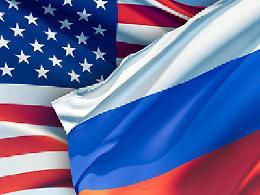Russia, Crimea and the Mighty Wurlitzer: Countdown to War?
Global Research News Hour Episode 58

“Ukraine, a new and important space on the Eurasian chessboard, is a geopolitical pivot because its very existence as an independent country helps to transform Russia. Without Ukraine, Russia ceases to be a Eurasian empire….However, if Moscow regains control over Ukraine, with its 52 million people and major resources as well as access to the Black Sea, Russia automatically again regains the wherewithal to become a powerful imperial state, spanning Europe and Asia.”
–Zbigniew Brzezinski, 1997; from The Grand Chessboard [1]
LISTEN TO THE SHOW
Length (59:01)
Click to download the audio (MP3 format)
On March 16, a massive turn-out of people in the Autonomous Republic of Crimea cast a ballot to decide the enclave’s future.
The final results found that with 81.3% of eligible voters in Crimea participating in the referendum, more than 96% chose to rejoin Russia. [2][3]
Western nations, including the US and Canada say they will not recognize the result of the vote. Moreover, the US and EU are pursuing economic sanctions against Russia, supposedly as punishment for its violation of the territorial integrity of Ukraine. [4][5]
The West’s concept of popular democracy seems to be highly nuanced.
Apparently US influenced popular uprisings in Kiev constitutes an accurate measure of the will of the Ukrainian people. A referendum monitored by international observers who testify to no voting irregularities is not recognized by the West as a gauge of the will of the Crimean people.
What is behind the major Western powers’ maneuvers around Ukraine? Do their actions constitute an errand of mercy to come to the aid of those freedom-loving people of Ukraine and Crimea who seek to break away from the dictatorial grip of Putin? Or is this some kind of geo-strategic power play masked by layers of base propaganda?
On this week’s Global Research News Hour, we cut through the media spin with three guests.
Rick Rozoff of STOP NATO International, explains that the Russian move into Crimea was completely understandable and predictable given a pattern of encroachment that goes back to NATO’s military intervention in Yugoslavia 15 years ago this month. He spells out the Western agenda and the stakes in the first half hour.
A retired Professor of Geography and Senior Scholar at the University of Winnipeg, John Ryan, helps further expose US-EU-Canadian hypocrisy by pointing out that Quebec’s right to secede from Canada has not been challenged the way Crimea’s right to secede from Ukraine has. He explains his perspective in the second half hour.
Felicity Arbuthnot, freelance print and broadcast journalist, reported on Iraq during the sanctions period and after the 2003 intervention by the US and its Coalition of the Willing. She compares the media and political spin around Ukraine and Crimea with that surrounding previous targets of Western intervention, including Iraq, Libya and Syria.
LISTEN TO THE SHOW
Length (59:01)
Click to download the audio (MP3 format)
The Global Research News Hour, hosted by Michael Welch, airs on CKUW 95.9FM in Winnipeg Fridays at 1pm CDT. The programme is also broadcast weekly (Monday, 5-6pm ET) by the Progressive Radio Network in the US, and is available for download on the Global Research website.
Community Radio Stations carrying the Global Research News Hour:
CHLY 101.7fm in Nanaimo, B.C – Thursdays at 1pm PT
Port Perry Radio in Port Perry, Ontario – Thursdays at 1pm ET
Notes:
2) http://www.huffingtonpost.com/2014/03/17/crimea-referendum-final-results_n_4977250.html
3) http://rt.com/news/crimea-vote-join-russia-210/
4) http://www.bbc.com/news/world-europe-26659578
5) http://www.bbc.com/news/world-europe-26672089

